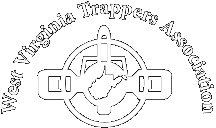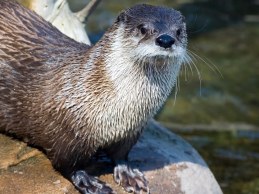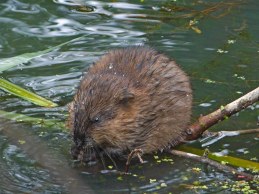



Defending and promoting the ethical harvest of furbearers in the
State of West Virginia.
State of West Virginia.



ADDRESS
P.O. Box 775
Glenville, WV 26351
CONTACT
Email: info@wvtrappers.com
Phone: (304) 916-3329
P.O. Box 775
Glenville, WV 26351
CONTACT
Email: info@wvtrappers.com
Phone: (304) 916-3329
Copyright© West Virginia Trappers Association 1999-2024
Website by: Hawkmtn
Website by: Hawkmtn

West Virginia Furbearer Projects
The West Virginia Division of Natural Resources has several projects open for trappers in West Virginia. By providing vital feedback for these programs, it helps the DNR monitor furbearer population for possible limit increases, and help provide information for the general well being of our state's furbearer populations.
Several of these projects are in coordination with West Virginia University graduate studies.
Several of these projects are in coordination with West Virginia University graduate studies.

WVDNR Furbearer Management News
Some of the best information regarding our state's furbearers come from studies and data provided by our own WV Division of Natural Resources biologists.
Furbearer Management Newsletters are published by WVDNR especially geared toward trappers, and each issue contains a weath of information.
Furbearer Management Newsletters are published by WVDNR especially geared toward trappers, and each issue contains a weath of information.

All WV trappers are encouraged to to participate in the Trapper's Survey. Your report can remain anonymous if you like. Click the image to view and download.
Trapper's Survey
Otter Sightings
Please Participate!
Please Participate!
River Otter sightings throughout West Virginia are being recorded with the WVDNR Citizen Scientist Program.
Use your mobile phone on the image above, or CLICK THIS LINK on your desktop to participate.
This survey will help to determine populations of otter throughout the state, and could possibly used to increase our otter limit some day. The survey has a few questions plus a moveable map to help pinpoint your sighting location.
EVERYONE IS URGED TO PARTICIPATE IN THIS STUDY!!
Use your mobile phone on the image above, or CLICK THIS LINK on your desktop to participate.
This survey will help to determine populations of otter throughout the state, and could possibly used to increase our otter limit some day. The survey has a few questions plus a moveable map to help pinpoint your sighting location.
EVERYONE IS URGED TO PARTICIPATE IN THIS STUDY!!




Spring/Summer 2008
Fall/Winter 2008-09
Spring/Summer 2009
Fall/Winter 2009-10
Fall/Winter 2010-11
Fall/Winter 2011-12
Fall/Winter 2013-14
Fall/Winter 2014-15
Spring/Summer 2015
Spring/Summer 2016
Spring/Summer 2017
Fall/Winter 2018-19
Summer/Fall 2019
Winter/Spring 2023
Winter/Spring 2024
Fall 2024
NEW!!! Spring 2025
Fall/Winter 2008-09
Spring/Summer 2009
Fall/Winter 2009-10
Fall/Winter 2010-11
Fall/Winter 2011-12
Fall/Winter 2013-14
Fall/Winter 2014-15
Spring/Summer 2015
Spring/Summer 2016
Spring/Summer 2017
Fall/Winter 2018-19
Summer/Fall 2019
Winter/Spring 2023
Winter/Spring 2024
Fall 2024
NEW!!! Spring 2025

West Virginia Furbearer Projects
The West Virginia Division of Natural Resources has several projects open for trappers in West Virginia. By providing vital feedback for these programs, it helps the DNR monitor furbearer population for possible limit increases, and help provide information for the general well being of our state's furbearer populations.
Several of these projects are in coordination with West Virginia University graduate studies.
Several of these projects are in coordination with West Virginia University graduate studies.
Trapper's Survey
All WV trappers are encouraged to to participate in the Trapper's Survey. Your report can remain anonymous if you like. Click the image to view and download.




WVDNR Furbearer Management News
Some of the best information regarding our state's furbearers come from studies and data provided by our own WV Division of Natural Resources biologists.
Furbearer Management Newsletters are published by WVDNR especially geared toward trappers, and each issue contains a weath of information.
Furbearer Management Newsletters are published by WVDNR especially geared toward trappers, and each issue contains a weath of information.

This project is a collaborative study with all states in the Northeast region. Due to concern regarding possible gray fox population declines in recent decades, we are attempting to understand if and how pathogens and toxins are affecting gray fox.
Frozen carcasses may be delivered to your regional DNR office or brought to the March Fur Auction. For complete details about the study, see Fall 2024 WVDNR Furbearer Management Newsletter.
Frozen carcasses may be delivered to your regional DNR office or brought to the March Fur Auction. For complete details about the study, see Fall 2024 WVDNR Furbearer Management Newsletter.

Gray Fox Study

Fisher Study
Recent fisher studies in the northeast have found 75-100% of trapper-harvested fisher have been exposed to anticoagulant rodenticides, such as poisons used to kill rodents by preventing the blooding from clotting.
Participants should freeze the fisher carcass within 24 hours of harvest, noting the location, county and date caught. For additional information, call Holly Morris at (304) 256-6947 or email holly.n.morris@wv.gov
Participants should freeze the fisher carcass within 24 hours of harvest, noting the location, county and date caught. For additional information, call Holly Morris at (304) 256-6947 or email holly.n.morris@wv.gov

Otter Study
Otter carcasses harvested in the 2024-25 season will again be collected to determine changes in yearly survival, food habits and health. Participating trappers will receive a $20 gift certificate for their usable otter carcass. Freeze the carcass and note the date, location and county. Otter can be delivered to any WVDNR District office or brought to the WVTA March Fur Auction.

Muskrat Study
The West Virginia Division of Natural Resources is collecting muskrat carcasses to examine pathogens and toxicants that may affect muskrat health and population abundance. If you trap muskrats and are interested in voluntarily participating in this study, please see details for collecting carcasses by viewing the Fall 2024 WVDNR Furbearer Management Newsletter.
Spring/Summer 2008
Fall/Winter 2008-09
Spring/Summer 2009
Fall/Winter 2009-10
Fall/Winter 2010-11
Fall/Winter 2011-12
Fall/Winter 2013-14
Fall/Winter 2014-15
Spring/Summer 2015
Spring/Summer 2016
Spring/Summer 2017
Fall/Winter 2018-19
Summer/Fall 2019
Winter/Spring 2023
Winter/Spring 2024
Fall 2024
NEW!! Spring 2025
Fall/Winter 2008-09
Spring/Summer 2009
Fall/Winter 2009-10
Fall/Winter 2010-11
Fall/Winter 2011-12
Fall/Winter 2013-14
Fall/Winter 2014-15
Spring/Summer 2015
Spring/Summer 2016
Spring/Summer 2017
Fall/Winter 2018-19
Summer/Fall 2019
Winter/Spring 2023
Winter/Spring 2024
Fall 2024
NEW!! Spring 2025





